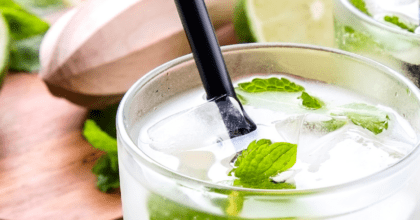A refreshing change – for first time Cider becomes as popular as Lager with Brits
While a challenging economic climate has resulted in rather flat sales for many alcohol sectors in the UK, reveals that there is one sector which has put some fizz into the consumer marketplace and is ripe for further development – Cider.
Mintel’s research shows that in terms of penetration, Cider has now become the equal of lager, while its steep sales growth in the past five years is the direct opposite of Lager’s equally dramatic sales decline. Indeed, consumer demand has skyrocketed and Mintel’s research reveals that, while 10 years ago, 42% of Brits were Cider drinkers – this has now grown to 47% – despite a decline in the UK adult drinking population from 88% to 82% in the past five years alone. This is compared to 46% of Brits who are Lager drinkers today.
Indeed, Cider’s success is in stark contrast to wine and beer – the most adversely affected in losing actual drinkers,mainly because they are the biggest categories with more to lose. In terms of actual sales, beer has seen the most dramatic decline, losing £2.2 billion in revenue between 2006 and 2011 mainly due to the dramatic decline of the UK pub sector. Meanwhile, wine has seen a decline in the proportion of UK drinkers from 66% in 2007 to 58% in 2011.
“Cider has been particularly successful at attracting younger drinkers from the ailing lager category, as well as from alcopops and wine.”- argues Senior Drinks Analyst Jonny Forsyth -“due to a combination of impressive innovation and marketing nous”.
Cider is the undisputed success story of the alcohol category over the past six years. It has grown its volume sales by just under a quarter (24%) between 2006 and 2011 and over this period its value sales increased from £1.7 billion to £2.4 billion. With pubs seeing record closures since 2008, cider has performed well above the market by recording a quarter (25%) growth in revenue within this channel – albeit a lesser 5% growth in real value sales between 2006 and 2011.
Furthermore, the sector has potential for much more growth with Mintel forecasting volume sales to increase by 12% between 2011 and 2016 and value sales by a third (33%) as annual above-inflation duty continues to push up retail sales prices (RSP).”This is in a highly challenging context for alcohol but Cider has had the advantage of a lower tax than borne by many competitors which it has invested wisely – especially in constant innovation.”Jonny adds.
However, there is clearly further opportunity for the sector as cider falls massively behind lager in volume consumed; meaning its revenue of £2.4 billion (in 2011) is a fraction of the UK lager market’s total revenues of £11.4 billion. Today, a third (34%) of alcohol drinkers who do not drink cider claim that it ‘never occurs to them to do so’ rather than them actively disliking it.
“This is a result of Cider not being able to compete with lager when it comes to being a ‘session drink’ rather than something you have one or maybe two glasses of, due to the sweetness of its flavour.”It is also less of a mainstream ‘top of mind option’ than lager. If Cider can develop its taste profile – and perception – to account for those with less sweet as well as sweeter palates, it has the potential for a broader appeal. For example, as an alternative to wine during meal occasions as well as providing the ‘all night’ volume appeal of lager – with the result that it can seriously close the gap on lager’s superior revenue.”Jonny continues.
Cider has seen particularly steep growth in the off-trade over the past five years, experiencing a 67% increase in volume sales and doubling its revenues between 2006 and 2011. Cider’s share of supermarket shelf space has grown exponentially over this time and in 2010 accounted for 40.7% of UK cider volume sales.
“While Cider’s competitors are catching up when it comes to sweeter flavoured taste innovations, Cider is storming ahead in this area. The entry of Stella Artois from AB InBev to the cider category, alongside the continued success of ciders such as Magners and Strongbow add to the rich growth potential of the category. This particularly space to grow the more premium segment”Jonny continues.
When it comes to reasons why consumers are so enamoured with cider over lager – an overwhelming 58% of consumers claim that it is more refreshing. Furthermore, half (49%) say it has a fresher taste, 44% prefer its sweeter taste, 27% drink it for a change and one in five (21%) claim its less gassy than lager – something which appeals to women especially. Revealingly, one in six (17%) of consumers say that they like that it tastes less alcoholic than lager, which reflects the desire among younger consumers, new to drinking, to have a more palatable drinking option.
“While Cider is drunk mainly by men, it also has a strong appeal to women and this gives it a considerable advantage in the in-home-focused alcohol market where ‘shareability’ between the genders has become a key benefit. Refreshment and freshness in cider are especially popular among over-35 drinkers, whereas under-35s have been most attracted by cider’s variety of sweet flavours.”
“This means that 18-34 year-olds tend to adopt a ‘mix and match’ approach to cider, drinking a combination of pear, apple and other fruit flavoured ciders (such as strawberry), while older consumers still prefer apple. Young Cider drinkers have been attracted to the sweeter-tasting non-apple ciders due to a combination of factors: they appeal to their sweeter tooth and their love of constant flavour innovation.”Jonny concludes.
-
Mintel StoreGet smart fast with our exclusive market research reports, delivering the latest data, innovation, trends and strategic recommendations....View reports
-
Mintel LeapMintel Leap is a revolutionary new AI-powered platform that will transform your research process....Book a demo







































